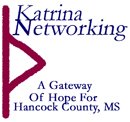Operation Blessing Completes Work
Since April 3, 2006, Operation Blessing's medical and dental clinics in New Orleans East have been providing free health care and prescription medicine to thousands of needy residents.
OBI plans to hand over the clinic and pharmacy to a local partner to continue helping residents in need.
During the last five months, OBI partnered with the Mayo Clinic, who sent monthly teams of volunteer doctors to New Orleans. It was a fruitful partnership that began in January 2007, when 38 Mayo personnel participated in "The 2nd Annual Greater New Orleans Medical Recovery Week," which gave thousands of needy residents access to free care.
Such help has been badly-needed
According to a report published by the New Orleans Health Department last year, the city's death rate increased by 48 percent in the wake of Hurricane Katrina.
"Every level of our health care delivery system was affected," said New Orleans Mayor C. Ray Nagin in his August 2007 testimony before Congress. "Since Hurricane Katrina, the only public clinical services in New Orleans East have been provided at a temporary site staffed by Operation Blessing, a faith-based nonprofit.”
At OBI clinic's ribbon-cutting ceremony in April 2006, Chairman Donald Powell, White House Federal Coordinator for Gulf Coast Rebuilding, called Operation Blessing the "best of America."
"I promise you these people are going to meet the needs," Powell said.
Both medical and dental clinics combined have treated more than 36,000 patients and filled more than 88,000 prescriptions.
But OBI's efforts have gone far beyond medical attention.
Early on, it became apparent that Katrina's devastation would have a serious long-term impact on the infrastructure of New Orleans.
OBI workers and volunteers were one of the first organizations on the scene providing food, drinks and relief supplies as well as staging mass food distributions with The Salvation Army.
In addition, OBI purchased heavy equipment, including two 18-ton cranes, to remove trees and major debris so that tarps could be secured on rooftops during initial rebuilding efforts.
In the months that followed, reconstruction became a top priority for OBI, with workers and volunteer crews helping to rebuild dozens of homes as well as restore community centers and parks.
Longer-term recovery efforts featured such programs as OBI's Bugbusters, a mosquito control program, as well as Ratbusters, a rodent control initiative. OBI also distributed cash grants totaling more than $4.8 million to partnering organizations, which helped an estimated 1.5 million people.
"It's rewarding to see people get the help they need," said Rick, 62, a retired Security Systems worker who came from Tennessee to volunteer at an OBI-sponsored event. "Everyone who comes through has a great attitude and that is proof New Orleans has the foundation to keep rebuilding."
Labels: hurricane katrina, new orleans, organization, volunteer






